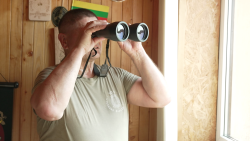Having a neighbor like Russia at the end of the street means 59-year-old Vytas Grudzinskas doesn’t get much rest. “I can see the soldiers best at night,” he says, pointing to a patch of green behind his neighbor’s garden.
“They have a shooting range they use over there behind that field. In the afternoon, you can hear the guns,” he said.
Grudzinskas has his own weapon, a machine gun, which he keeps locked in a cupboard, close at hand – although his guard dog, a Maltese terrier, might be less effective in battle.
The small city of Kybartai where Grudzinska lives lies inside both NATO and the European Union but also along one of the world’s hottest borders – the Suwalki corridor. This tract of land, about 60 miles wide, is sandwiched between Russia’s heavily fortified, nuclear-armed, Baltic bolthole of Kaliningrad and its ally, Belarus. The pass – viewed by many analysts as a weak point within NATO – is caught in a pincer grip between Kremlin troops. The fear is that if Ukraine fell, Russia would advance through it next, possibly cutting off the Baltic states in days.
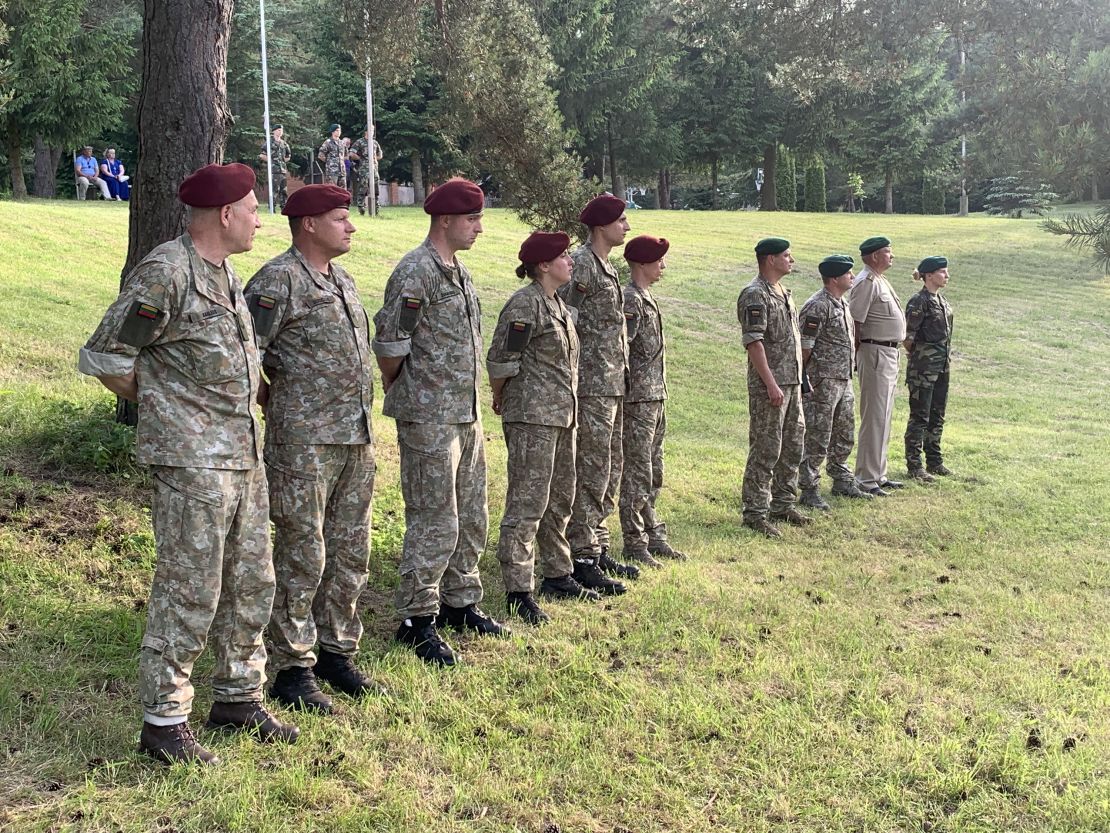
The scars of Soviet occupation run deep in this part of Europe. Tens of thousands of Lithuanians were forcibly deported to gulags in Siberia and the far north by the Soviets in the 1940s and 1950s. Almost 30,000 Lithuanian prisoners perished in the forced labor camps.
“My father was sent to Sakhalin in Russia’s far west for 15 years,” said Grudzinskas. “He ate grass the first year to survive.”
So, when Russia annexed Crimea in 2014, Grudzinskas joined Lithuania’s century-old volunteer militia – the Riflemen – and took up arms in his own backyard.
That means he’s the first line of defense if the Kremlin’s troops, stationed 60 feet away in the Russian exclave, put one foot on NATO soil.
“How can you trust Russia? With our history?” he asked.
“Of course, I’m scared. How could I not be?” he added. “My family is here. I built this house with my bare hands.”
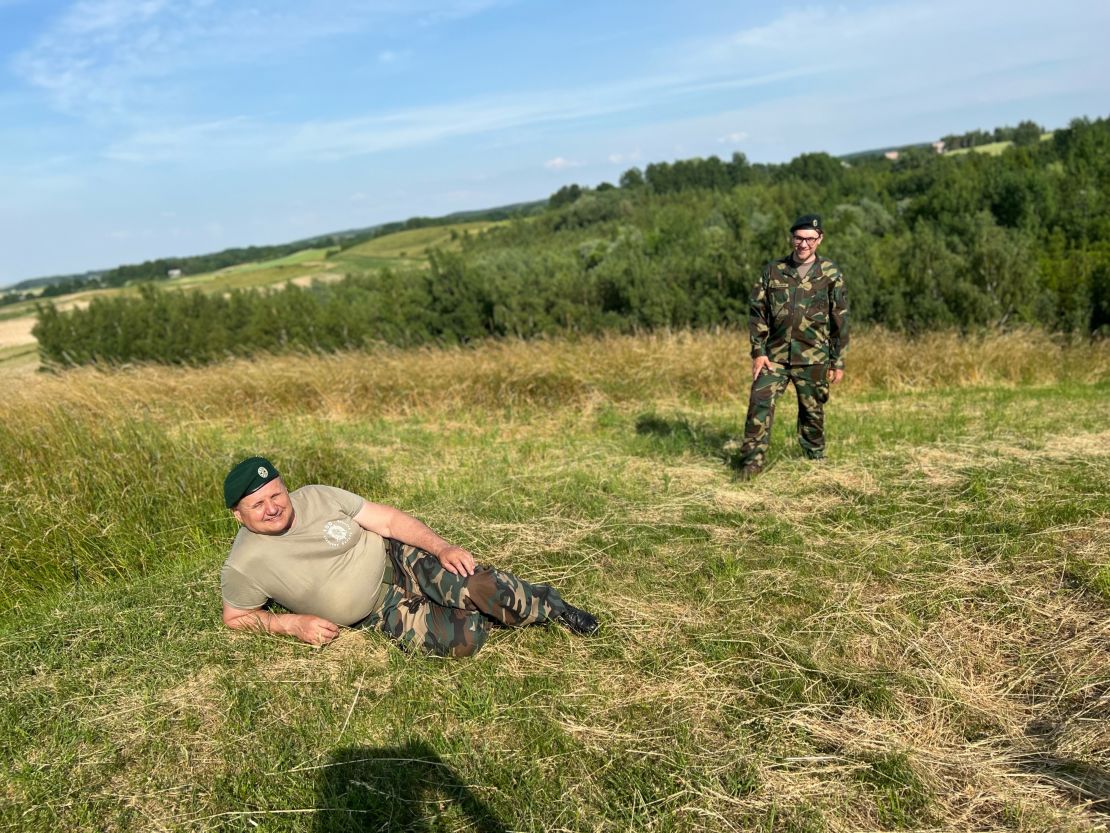
The 103-year-old Riflemen militia has seen its numbers balloon since Russia invaded Ukraine in February, according to its commanding officer.
Currently there are about 12,000 volunteer members, said Egidijus Papeckys, commander of the Riflemen’s 4th Regional Command. And that number is increasing each month by tenfold, he said.
Since the first days of the Ukraine war, the number of new recruits seeking to join each month has risen from 10 to 12 to more than 100.
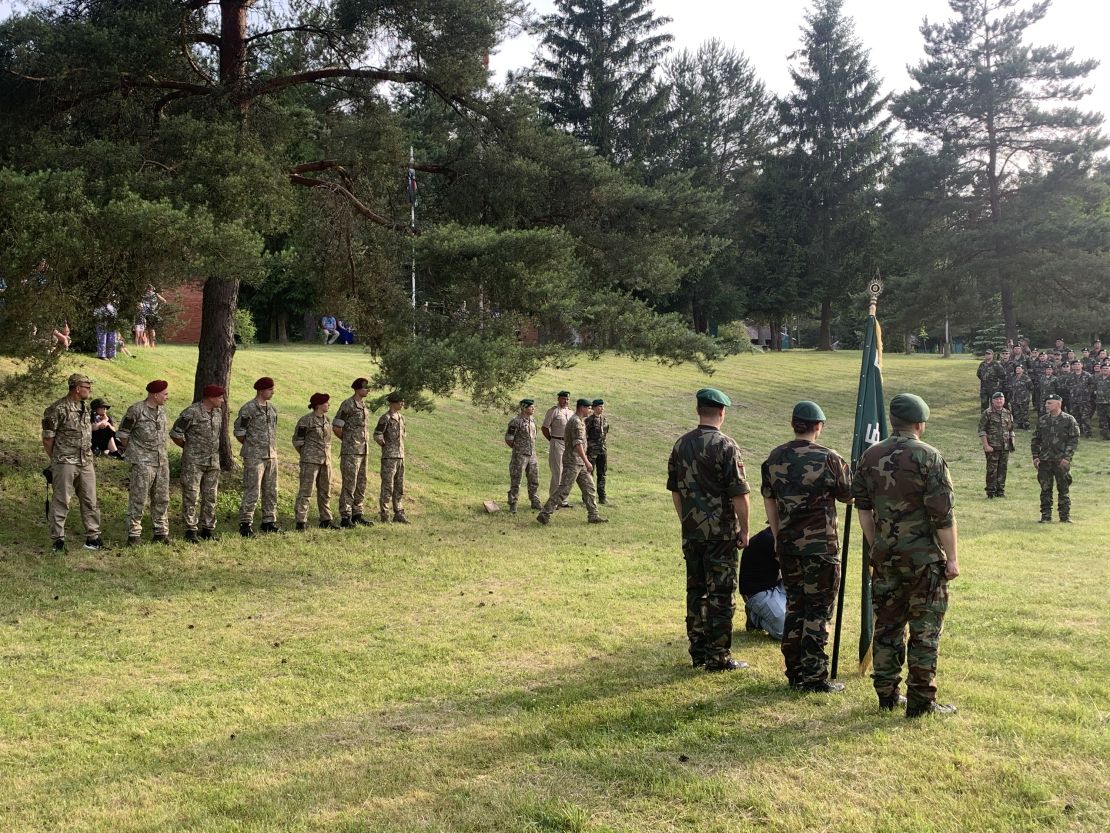
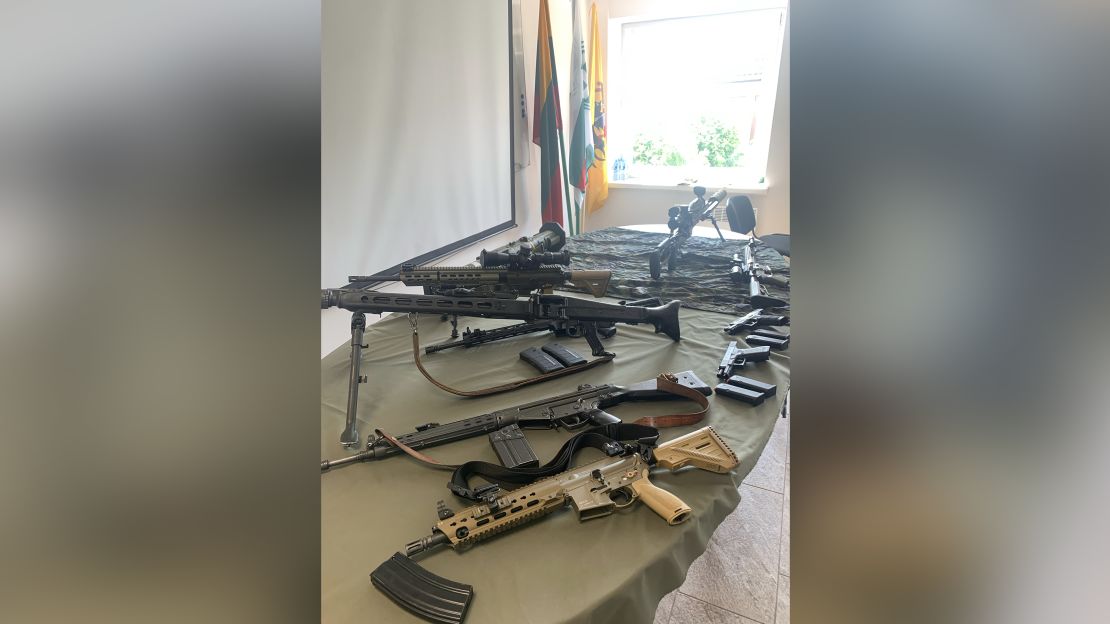
At his headquarters in the city of Marijampole, deep in the Suwalki corridor, Papeckys shows off some of the arsenal at his unit’s disposal, including assault rifles, handguns and grenade launchers.
The 51-year-old is also desperate to avoid a return to Russian rule. His father was sent to Siberia, as were his wife’s relatives.
“We remember the Soviet occupation, and we do not like to be occupied any more. We are free people,” Papeckys said.
At a swearing-in ceremony held on the 103rd anniversary of the Riflemen in the neighboring city of Kalvarija, new member Karolis Baranauskas says he was always interested in the organization but that the war in Ukraine called him to action. Although he was born in 1990, the year Lithuania became independent from the Soviet Union, he says that “every Lithuanian knows that Russia is a threat. The recent events prove that.”
To better protect the Baltics, NATO has radically overhauled its defense planning in this part of the world, announcing ahead of a summit in Madrid this week that it would increase its presence in the region enough to repel any attack in real time, rather than sending in troops to recapture territory once it’s been seized.
That will mean thousands more troops, which Lithuania would like to see based permanently around the small country’s 621-mile-long borders with Belarus and Russia.
Deputy Minister of Defense Margiris Abukevicius concedes it could take two years for such troops to be in place. But he says there’s now an understanding that military capabilities need a substantial upgrade around Suwalki and elsewhere. The corridor, also known as the Suwalki Gap, has always been a cause of worry, according to Abukevicius. It’s understood to be a “weak point” by the Baltics and NATO.
“In the current situation we understand the vulnerability much clearer,” he told CNN in an interview on Tuesday at the Ministry of Defense in Vilnius, the capital.
“I think NATO understands that and takes decisions,” he said. “I really hope that NATO’s summit this week will give a very strong response and a very clear direction where NATO’s long-term adaptation should go.”
At the same time, Lithuania says it has been fending off ongoing Russian cyberattacks on its state institutions and private sector in recent days following its decision last week to block some goods like grain and steel – which are subject to EU sanctions – from being transported by train into Kaliningrad. Although cyberattacks by Russian hackers are relatively common in Lithuania, Abukevicius says the blockade was the “trigger point.”
“We are seeing an increase in activity at state institutions against some critical operators – especially transport and the media,” Abukevicius said.
During target practice at a shooting range nestled in the lush landscape of Marijampole, Grudzinskas and other members of Papeckys’ unit aim their assault rifles during target practice, just as the Russian soldiers behind Grudzinskas’ street often do.
Their shots momentarily shatter the quiet, but for now the fragile peace holds.

